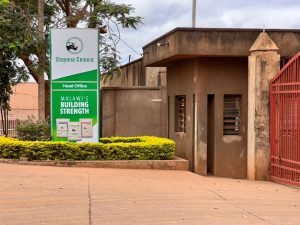CHAKWERA STILL IN BED WITH ZUNETH SATTAR: TREASURY PAYS $4.98 MILLION FOR ARMOURED CARRIERS AMIDST CORRUPTION ALLEGATIONS

President Lazarus Chakwera - The Commander-In-Chief of the Malawi Defence Force
BY GREGORY GONDWE
In a move that contradicts President Lazarus Chakwera’s stance on corruption, the Malawi Defence Force (MDF) has made a substantial payment to a firm associated with businessman Zuneth Sattar, who is currently under scrutiny for alleged corrupt practices. This transaction, involving a $4.98 million (K8.4Bn) payment, forms part of a larger deal amounting to $19.93 million (K33.6Bn) for the procurement of 32 Armoured Personal Carriers (APCs).
This information was confirmed through a document seen by the Platform for Investigative Journalism (PIJ), dated November 14. The communication, originating from the Directorate of Logistics of the MDF, bears the reference DOL/A/125/2 and is titled “Part Payment for the Supply and Delivery of Thirty-Two (32) APCs.” Colonel Lovemore Govenor Gowa, the acting Chief Logistics Officer for the MDF, signed off on this payment.
This development raises questions about the Malawian government’s commitment to combating corruption, especially in light of the ongoing investigations surrounding Sattar. The direct involvement of the MDF in this transaction, despite the broader context of corruption allegations, underscores a complex scenario in Malawi’s efforts to uphold integrity in public procurement and defence dealings.
MDF Commander Travels to Dubai with Team

In a development as recent as this January, Colonel Lovemore Govenor Gowa, the acting Chief Logistics Officer for the MDF, corresponded with Ashok Nair, an associate of businessman Zuneth Sattar who was arrested by the Anti-Corruption Bureau (ACB). This communication centred around a pre-shipment inspection of Armoured Personal Carriers (APCs) in the United Arab Emirates.
Highlighting the immediacy of these events, Colonel Gowa’s message clearly stated:
“MDF entourage will come for pre-shipment inspection exercise from 2 to 26 January 2021.” This statement not only confirms the inspection period but also details the composition of the delegation, including several high-ranking military officials.
This important delegation included General Paul Valentino Phiri, Colonel Gilbert Gowa, Colonel AE Simwaka, Colonel Gilbert Mittawa, Lieutenant Colonel Thoko Chazema, Lieutenant Colonel KC Kadaluka, Captain Kennedy Nkhani, and WOII WO Mulenga.
The inclusion of such high-profile figures for the inspection, as part of the significant $4.98 million payment for the APCs, raises eyebrows, particularly in light of the Malawian government’s previously stated position against contracts linked to Sattar.
The recent nature of this transaction, occurring just this January, highlights a continued and potentially problematic relationship between the MDF and entities associated with Sattar.
Further details from Colonel Gowa’s January correspondence reveal the comprehensive nature of the pre-shipment inspection for the APCs. The letter delineated a meticulous inspection agenda:
“The pre-shipment inspection exercise will cover checking the APCs; specifications; tools and accessories; test driving up to 10 kilometres; driving in lagged terrain; driving in ‘mad’; driving in sandy terrain; and hill climbing as well as other capabilities.”
Payment Process is Set into Motion
On November 14, a significant communication was issued by the Directorate of Logistics of the Malawi Defence Force (MDF), marked with the reference DOL/A/125/2.
This document, titled “Part Payment for the Supply and Delivery of Thirty-Two (32) APCs,” detailed a transaction amounting to US$4,983,400.00.
Colonel Gowa, underscoring the nature of this transaction, noted in the communication:
“This was an advance payment with tabulated details of payment towards the contracting indicating that the whole deal is worth US$19,933,600, and with the advance payment done, the balance is US$14,950,200.”

A subsequent communication, signed by MDF Chief of Legal Services Gilbert Mittawa on November 20, 2023, further elaborated on the contractual arrangements.
Titled “Deed of Assignment: Malachite FZE to International Armored Group,” it outlined the contractual obligations and transitions:
“That contract for the supply of 32 APCs between the Government of the Republic of Malawi and Malachite FZE dated 14 May 2021 and another Statement and Deed of Assignment from Malachite FZE dated 20th July 2023.”
The document explicitly stated, “Kindly be informed that Malachite FZE executed and issued a deed of assignment with International Armored Group (IAG). The deed assigns the debt and all rights in relation to the contract in Reference to the contract.
In an intriguing turn of events, Mittawa detailed a significant shift in the payment process. “Payments that are due to Malachite FZE under the said contract are to be made to International Armored Group (IAG) unless and until advised otherwise,” the document stated.
Treasury Pays for the APCs

To further illustrate the involvement of the entire government machinery in this transaction, a significant financial document was issued on November 20, 2023.
This Bank Statement Transfer Instruction (Forex), addressed to the Malawi Defence Force (MDF), bore the subject “Transfer of Funds: USD 4, 983, 400.”
The document, identified with Instruction No: FRX1001040 and Voucher No 101PV5068192, specified a payment to International Armoured Group FZE, which holds an account with Emirates NBD, Account Number 1021471810302.
The statement’s accompanying description clarified the nature of this transaction:
“This is an advanced payment for the purchase of 32 APC as per attached letter DOL/A/125 dated 17/11/2023, contract dated 24/05/2023, and invoice number SQU0705 dated 16/11/2023.”
This detailed description ties the payment directly to the procurement of the APCs.
Crucially, the Bank statement transfer instruction was authenticated by signatures from key government financial figures – Budget Director Loyce Chilimsungwi and Accountant General Henry Mphasa. Their endorsement of the document not only confirms the transaction but also provides insights into the total contract amount, the advance payment made, and the remaining balance due.
These latest occurrences come in stark contrast to the Malawi government’s public commitment to disengage from Sattar’s business network following his arrest by the UK’s National Crime Agency in January 2022.
Attorney General Thabo Chakaka Nyirenda, referencing Section 46(c) of the Public Procurement and Disposal of Assets Act, 2017, asserted that severing these ties was in the public interest.
How AG of the Old Discontinued Sattar Transactions
In the wake of corruption allegations involving Sattar, the Malawian government took decisive action with contracts with companies linked to the businessman cancelled/
Attorney General (AG) Thabo Chakaka Nyirenda, elucidating this decision, stated in a release:
“I have made this decision in my capacity as principal legal adviser to the Malawi Government and on behalf of public sector procuring entities.”
The AG emphasized the rationale behind this decision: “The basis of his decisions is convenience and public interest, pursuant to section 46(c) of the Public Procurement and Disposal of Assets Act, 2017.” This statement underscores the government’s efforts to balance legal obligations with the broader public interest in this matter.
In part, the AG’s statement reads: “In terms of Section 46 (c) of the Procurement and Disposal Assets Act, the Government enjoys immunity from paying a supplier lost profits and any other expenses reasonably incurred.”
Nyirenda has barred companies linked to Sattar from any future involvement in public procurement in Malawi.
At the time, Nyirenda had indicated that his decision came after thorough scrutiny of Sattar’s extensive dealings with public sector procuring entities over the past 11 years, information that has been widely circulated in print and social media.
Responding to these revelations, the AG’s office took steps to prevent firms connected to Sattar from participating in government contracts.
Nyirenda identified several companies associated with Sattar, which has been actively trading or doing business with the government.
These include Top Prima FZE, Malachite FZE, Xaviar Investment Ltd, Xelite Strips, Molecules General Trading, and Pryte General Trading.
In light of these questionable procurement-related issues, Nyirenda’s office had issued an advisory to all procuring entities within the government. They were instructed to submit copies of contracts linked to Sattar’s firms to the AG’s office for review.
This measure was part of a broader effort to ensure transparency and accountability in public procurement, particularly in contracts involving Sattar and his associated companies.
ACB Too Restricted the Police and MDF

On November 1, 2021, a significant step was taken by the Anti-Corruption Bureau (ACB) in addressing corruption in Malawi’s public sector procurement. The ACB issued a press release, significantly titled “ACB RESTRICTS PUBLIC MDF AND MALAWI POLICE SERVICE FROM DEALING WITH CONTRACTS.” This release marked a pivotal moment in the bureau’s efforts to combat corruption.
The release noted, “Pursuant to its powers under section 23(1) of the Corrupt Practices Act, on 21st October 2021, the Anti-Corruption Bureau (ACB) issued restriction notices to the Malawi Defence Force and Malawi Police Service.” It’s important to note that the press release included specific serial numbers for each contract, detailing the extensive nature of these restrictions. However, for brevity, these serial numbers are not listed here.
The restricted contracts involved a range of suppliers, including Xaviar, Malachitte FZE, and Crimson Trading LLC. The ACB’s detailed approach highlights its commitment to scrutinising and regulating potential corruption in dealings with these entities.
ACB Principal Public Relations Officer Egrita Ndala further emphasized the impact of these measures. She explained that both the Malawi Defence Force and the Malawi Police Service are restricted from dealing with the outlined contracts until the ACB’s investigations are concluded or the restrictions are lifted. This statement from Ndala underscores the bureau’s role in ensuring due diligence and integrity in public sector dealings.
In light of the recent developments concerning the contracts associated with Zuneth Sattar, the Anti-Corruption Bureau’s (ACB) stance has been a point of interest.
ACB Says Restrictions Still Stand
ACB Director Martha Chizuma confirmed the bureau’s firm position in an interview with PIJ on Saturday.
“As ACB, we restricted all Sattar contracts around December 2021. Later, AG cancelled all the contracts. 32 APCs were part of the contracts. The AG and MDF would be in a better position to comment on this,” she stated, delineating the timeline and scope of the bureau’s actions.
Government Officials Feign Ignorance
The matter of whether the government has resumed business with Sattar’s firms remains a key question.
In response to inquiries, Accountant General Mphasa acknowledged the importance of the issue:
“Kindly liaise with the Minister of Information, who is the Government Spokesperson on these matters.”
Efforts to gain further clarity from the Information Minister, Moses Kunkuyu, were met with initial acknowledgement but no subsequent response.
Similarly, Budget Director Loyce Chilimsungwi, upon receiving questions from PIJ via WhatsApp, did not provide any response.
Attorney General Thabo Chakaka Nyirenda, when probed by PIJ on potential changes in the government’s approach, responded with an intent to follow up: “Let me come back to you.”
Further attempts to reach the MDF commander, General Phiri, for comments, especially considering his presence in Dubai for the inspection of the APCs, resulted in him reading the questions sent via WhatsApp but not responding to PIJ’s queries.
This lack of response from multiple government officials adds to the ambiguity surrounding the government’s current dealings and stance on the Sattar-linked contracts.
Going Back to another AG Restriction Notice

On January 11, 2022, a significant correspondence emerged from the Attorney General’s office.
The Attorney General wrote to the Managing Director of Malachite FZE in a letter bearing the reference number MJCA/AG/218. This letter, titled “Termination of the Contract for the Supply of Six Protected Armored Trucks and 32 Armoured Personnel Carriers (APCs),” marked a pivotal moment in the government’s dealings with the firm.
In the letter, the Attorney General explicitly stated, “I have been instructed by the Malawi Defence Force to inform you about its decision to terminate the contract for the supply of armoured water cannon trucks and 32 Armoured Personnel Carriers (APCs) to the Malawi Defence Force with immediate effect.”
This direct communication signified a clear shift in the government’s approach to its contracts with entities linked to Zuneth Sattar.
Further elucidating the reason behind this decision, the letter disclosed, “It had come to the attention of the Malawi Government that Mr Zuneth Sattar, who has interests in Malachite FZE, is under criminal investigations in the United Kingdom.”
Attorney General Chakaka Nyirenda further justified this termination by stating, “It would therefore not be in the public interest to continue with the contractual relationship when one of your senior officials is under investigation.”
He added, “Thus, the decision to terminate the contract has been made on the basis of convenience and public interest pursuant to section 46(c) of the Public Procurement and Disposal of Assets Act, 2017.”
In his communication to Malachite FZE, Attorney General Chakaka Nyirenda further elaborated on the legal basis for the contract termination, directly quoting the relevant law:
“A procuring and disposing entity may terminate a procurement contract for convenience, if it is determined to be in the public interest and subject to payment for work satisfactorily completed, or services satisfactorily performed prior to the effective date of termination and for reimbursable expenses actually incurred, or for any goods specially manufactures under the procurement contract and reasonable termination costs but excluding lost profit.”
This citation from the Public Procurement and Disposal of Assets Act, 2017 provided a clear legal framework for the decision.
Nyirenda specified the financial implications for Sattar’s company, stating:
“Accordingly, Sattar’s company would be paid for only the value of the equipment supplied, or specifically made or which are being specifically manufactured under the procurement contract and not for profit.”
Furthermore, the Attorney General instructed Malachite FZE regarding the future of the contract:
“Consequently, you should stop ordering water cannon trucks and Armored Personnel Carriers, or if you are the manufacturer, you should stop manufacturing the said water cannon trucks and APCs.” This directive was clear and unequivocal in its intent to halt any further production or procurement under this contract.
The letter also mandated that Malachite FZE provide evidence to the MDF of any water cannon trucks or APCs produced in accordance with the contract’s provisions.
Nyirenda concluded: “The Malawi Defence Force shall not accept equipment delivered in contravention of section 46(c) of the PPDA Act 2017 following termination of this contract.”
Government Change of Heart Contradicts NCA Stand
Despite the Malawi Government’s earlier decision to terminate contracts linked to Zuneth Sattar, recent actions suggest a secretive reversal in this stance. This development is particularly notable given that Sattar is still embroiled in an active case with the UK’s National Prosecutions Agency (NCA).
The NCA’s investigation into Sattar, a Malawian-born UK citizen, centres on allegations of grand corruption in Malawi. These allegations remain a significant legal matter. In a notable court appearance in May 2022, Sattar’s legal team stood before the Uxbridge magistrates court, firmly opposing any changes to his police bail conditions, which currently restrict his travel outside the UK.
Arrested in October 2021, the 41-year-old businessman has yet to be formally charged. The NCA’s investigation focused on alleged corruption involving three public contracts between Sattar’s companies and the Malawi government. Despite the serious nature of these allegations, Sattar has consistently denied any wrongdoing.
PIJ has played a crucial role in bringing to light certain contracts between Sattar’s companies and Malawi’s police and army. These contracts, involving tens of millions of dollars, include notably overpriced water cannons, highlighting the potential scale of the corruption.
The publicized court hearing further escalated the issue, revealing more details about the allegations and causing political upheaval in Malawi. High-ranking officials, including Vice President Saulos Chilima, State House Chief of Staff Prince Kampongamgaga, then Inspector General of Police George Kainja, and former Anti-Corruption Bureau (ACB) director Reyneck Matemba, were implicated in various alleged corrupt dealings with Sattar.
The repercussions of the corruption scandal involving Zuneth Sattar have rippled through Malawi’s criminal justice system, leading to significant developments and controversies. Following the trail blazed by high-profile figures like Inspector General of Police George Kainja and ACB director Reyneck Matemba, others such as Mwabi Kaluwa, a lawyer for the Malawi Police Service, and John Suzi-Banda, Chairperson of the Public Procurement and Disposal Authority (PPDA), have also been drawn into the fray.
This intricate web of allegations and legal proceedings has put a spotlight on the Malawian criminal justice system, which has seen intense internal conflicts. A notable instance was the controversial arrest and subsequent release of ACB boss Martha Chizuma, an event that heightened public anxiety over the direction of these high-stakes investigations.
Adding to the complexity, certain accused individuals in Malawi, including former Lands and Housing Minister Kezzie Msukwa and Sattar’s associate Ashok Nair, have successfully obtained court orders to halt their prosecutions. These legal manoeuvres have contributed to a sense of deadlock in several related investigations.
In pursuit of clarity and progress, the Platform for Investigative Journalism (PIJ) reached out to the UK law enforcement agency for insights. Specifically, PIJ sought information on when charges against Sattar might be commenced by the UK authorities and whether the Crown Prosecution Services (CPS) has completed its review of the case.
Furthermore, PIJ inquired about the initiation of the Mutual Legal Assistance (MLA) process, a critical step for facilitating evidence exchange between law enforcement agencies in the UK and Malawi.
In response to these inquiries, NCA Press Officer Stuart Hadley stated:
“The only information we are in a position to offer is that the investigation is ongoing. We would not comment on the other aspects you raise.”
Resurrecting 2021 Contract

In a critical development within the defence procurement saga in Malawi, it has been revealed that the Malawi Defence Force (MDF) and Malachitte FZE formalized a significant contract, a document to which PIJ has obtained access.
Signed on May 24, 2021, the contract featured the signatures of the then Deputy MDF Commander Phiri, now the MDF Commander and Colonel ZM Juba as a witness. Representing Malachitte FZE were Director Zuneth Sattar and his associate Ashok Kumar.
The contract centred around the supply of Guardian Xtreme Armoured Personnel Carriers (APCs).

In a letter dated November 19 addressed to the MDF, Malachitte FZE informed the MDF that the production of 10 Guardian Xtreme APCs was nearing completion, with an expected date of November 28, 2021.
This communication also extended an invitation: “We invite your team to travel with us to UAE Factory – Dubai to have the inspection and training done on the first week of December 2021.”
Further accommodating the MDF’s needs, Malachite FZE offered to arrange visas for the travelling team, with the exception of a holder of diplomatic or service passports. This gesture indicated Malachitte FZE’s willingness to facilitate the logistical aspects of the inspection and training process related to the APCs.
In the 2021 contract, MDF procurement of PCs involves the acquisition of specialized military vehicles from Malachite FZE.

The order includes 10 Guardian Xtreme APCs, all in Military Green, manufactured in 2020. These vehicles, Right-Hand Drive (RHD) Ford F550s with a 6/7L, V8, diesel automatic engine, are armoured to Stanag 4569 Level 2 standards. Additionally, the purchase includes 6 RHD Toyota Land Cruiser 200s, 4/5L V8, diesel automatic, armoured to Stanag 4569 but at Level 1.

A key document in this procurement process is a letter dated September 24, 2021, from the MDF, signed by Major EK Mlelemba with the reference CQ/221.
His letter, addressed to the Secretary to the President and Cabinet, sought authorization to proceed with the procurement of the 32 APCs from Malachite FZE through single sourcing. Major Mlelemba stated, “Malawi Defence Force followed all the procurement processes and obtained a ‘No Objection’ from PPDA for the award of the contract.”

The financial specifics of these vehicles were also detailed. The 10 Guardian Xtreme Mine Resistant Ambush Protected Stang APCs were priced at a total of US$6,952,000, with each unit costing US$695,200. Furthermore, the Jaw Command 4×4 CEN B6 Level Protected APCs came at a total of US$13,041,600, with each vehicle priced at US$592,800.
The 2021 contract between the Malawi Government and Malachite FZE for the procurement of Armoured Personnel Carriers (APCs) stipulates a structured payment schedule to be executed in three instalments.
The initial payment, amounting to 25 per cent of the total contract value, equates to US$4,983,400. This sum was to be paid within 90 days of signing the contract, a move that indicates the reactivation of the previously halted contract with updated signing dates.
According to the contract terms, the Malawi Government was expected to make a second instalment payment, accounting for 50 per cent of the total contract value.
This payment, totalling US$9,966,800, was scheduled to be made after the delivery of the APCs, either before or within the 2022/2023 financial year of the Malawi Government.
The contract also outlines a third and final instalment, again representing 25 per cent of the total contract value, mirroring the amount of the first instalment. This payment was scheduled to be made either after delivery or within the 2023/2024 financial year of the Malawi Government.
Sattar Makes MDF Wait in Vain
Apart from the corruption allegations, another factor contributing to the initial collapse of the military vehicle deal between the Malawi Defence Force (MDF) and companies linked to Zuneth Sattar was a lack of transparency.
Sources within the MDF, who communicated with PIJ, revealed issues regarding the clearance of military vehicles through Mozambique, which never materialized as expected.

PIJ has also obtained a letter from Alberto Mguco, the Head of the Minister of National Defence’s office in Mozambique. Dated October 14, 2021, Mguco’s letter acknowledged the receipt of a diplomatic note from the Ministry of Foreign Affairs and International Cooperation of Malawi. This note, dated September 2021, requested transit authorization from Beira Port to Zobue border for the 16 military vehicles, including Ford and Toyota Land Cruiser models, purchased by the MDF.
Mguco’s letter highlighted the positive bilateral relations between Mozambique and Malawi: “Following the excellent bilateral cooperation between the Republic of Mozambique and the Republic of Malawi, the Minister of National Defence has authorized the transit of 16 military vehicles,” he wrote.

In a significant development on November 1, 2021, following indications that 16 military vehicles were ready, Simon Stima Phiri, who was, at the time, Assistant Protocol Officer, writing on behalf of the Secretary for Foreign Affairs, informed the MDF Director of Operations that the Mozambican Government had authorized the transit of these vehicles. This clearance was for the 16 military vehicles purchased by the Government of Malawi to pass through Mozambique.
Despite the authorization granted by the Mozambican Government for the transit of 16 military vehicles, the Malawi Government found itself in a predicament. The expected delivery of these vehicles, as part of the procurement deal with companies linked to Zuneth Sattar, never materialized. This situation left the Malawi Government waiting in vain, as the anticipated arrival of the said 16 vehicles turned into a no-show.
This development added another layer of complexity to the already intricate military vehicle procurement process. The non-arrival of these vehicles raised questions about the logistics and reliability of the delivery arrangements, further complicating the situation for the Malawi Defence Force (MDF) and the government’s procurement plans.





